20 Movies: The Blood of Heroes
AKA The Salute of the Juggers
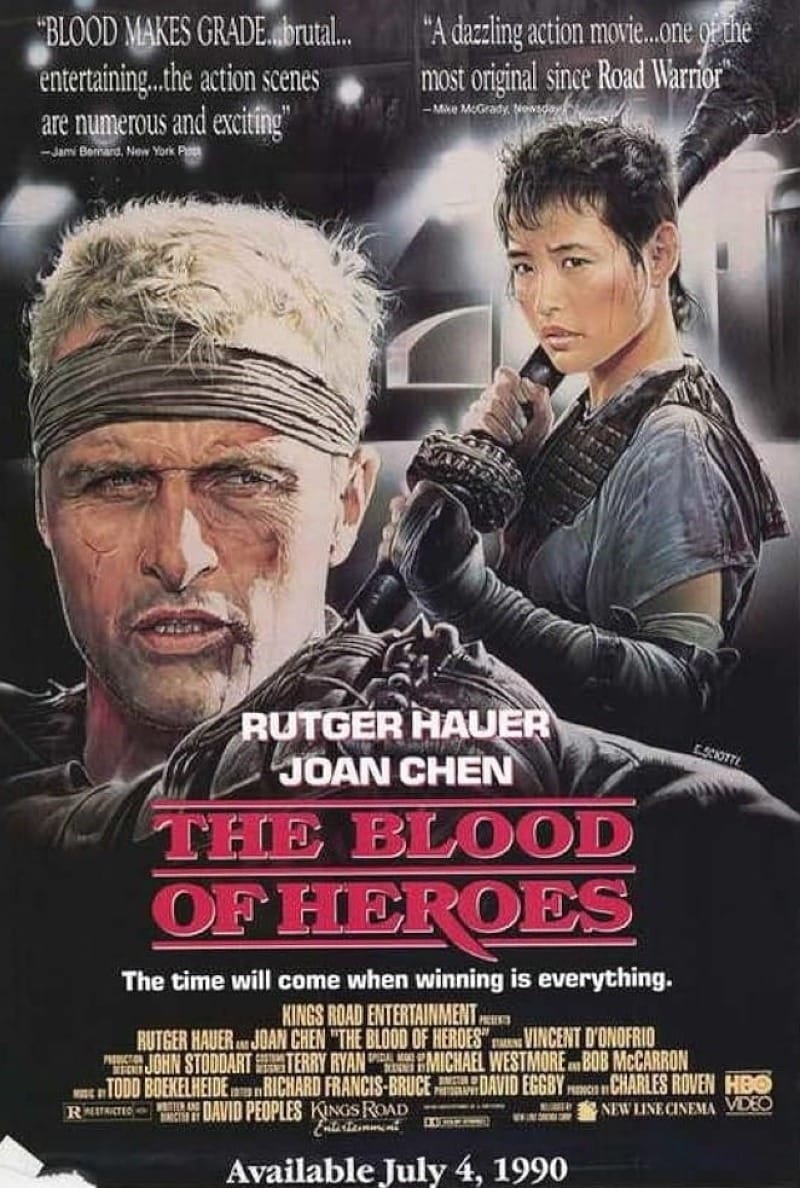
In a desolate future, long after the collapse of society, the only entertainment comes from a brutal sport known as The Game. For some, The Game is a break from the harsh reality of life, but for others, the hope that one day they will be good enough to play in The League burns deep within them.
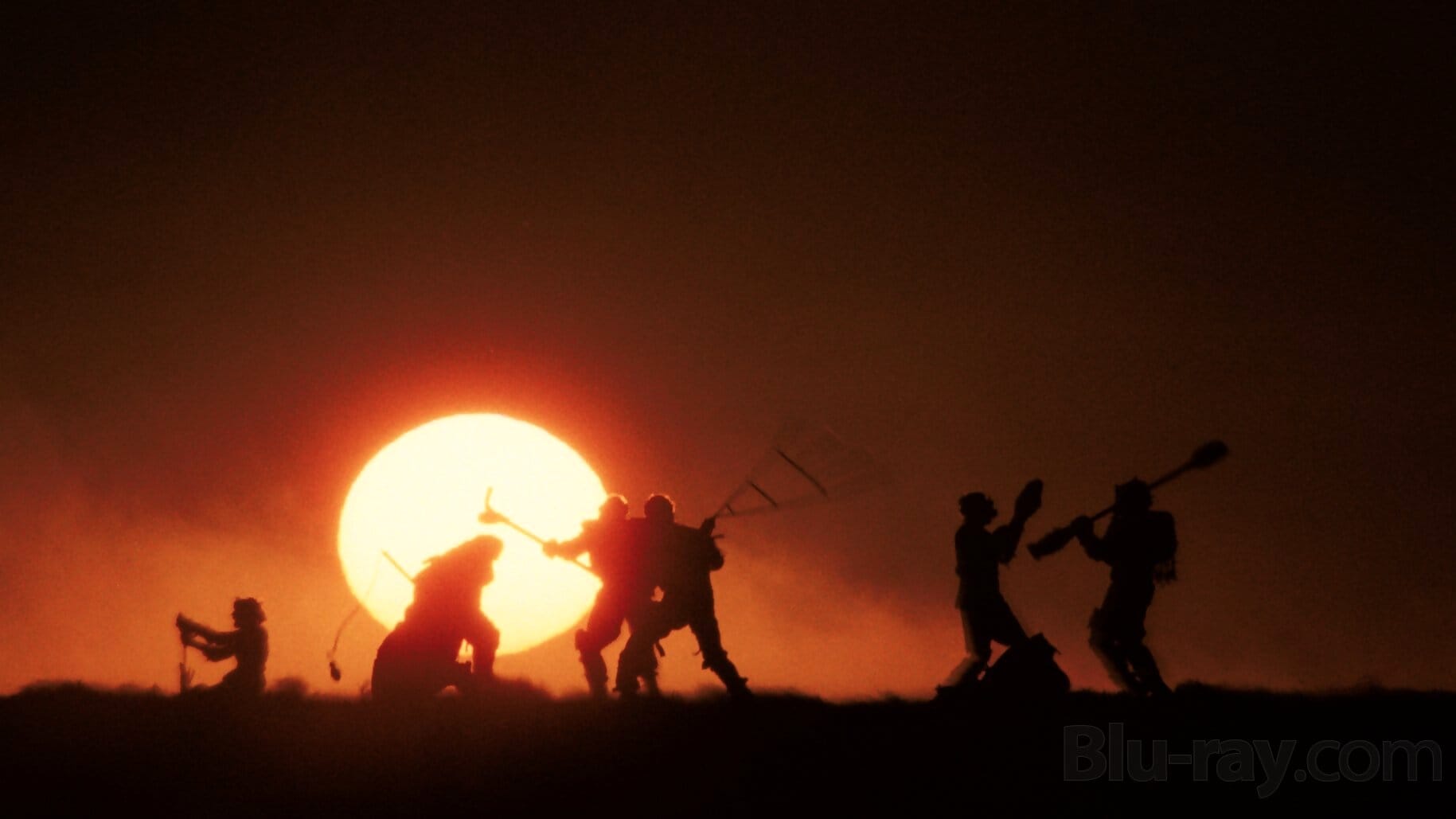
After a few weeks off for the end of America as we know it, I'm posting about my 20 most influential movies again. The result of a social media trend-game, the idea was that you choose 20 movies that greatly influenced you, and then you post the poster of each one, one per day, for 20 days. No reviews, no explanations, just the posters. So I did that, but I also wanted to talk about them a little bit.
And now here we are with the 15th film on the list…
The Blood of Heroes specifically gets the first spot back because I recently received my 4K & Blu-ray T-shirt Collector's Edition set from Umbrella Entertainment in the mail. An independent Australian distributor of local and international film, Umbrella has a goal of championing bold, original cinema, and to bring distinctive voices in Australian and New Zealand film to the world. They definitely do a good job of that, because I don’t think Blood of Heroes is even streaming at the moment, and this an awesome set. It not only comes with the restored and remastered 104 minute original version of the film, as well as multiple commentary tracks and special features, it also comes with a cool T-shirt, a book of a bunch of Behind-the-Scenes stuff, some Production Notes, a lot of Art, and even a couple of essays too, including one by Travis Johnson. Maybe best of all, it also comes with a guide book on how to actually play The Game itself.
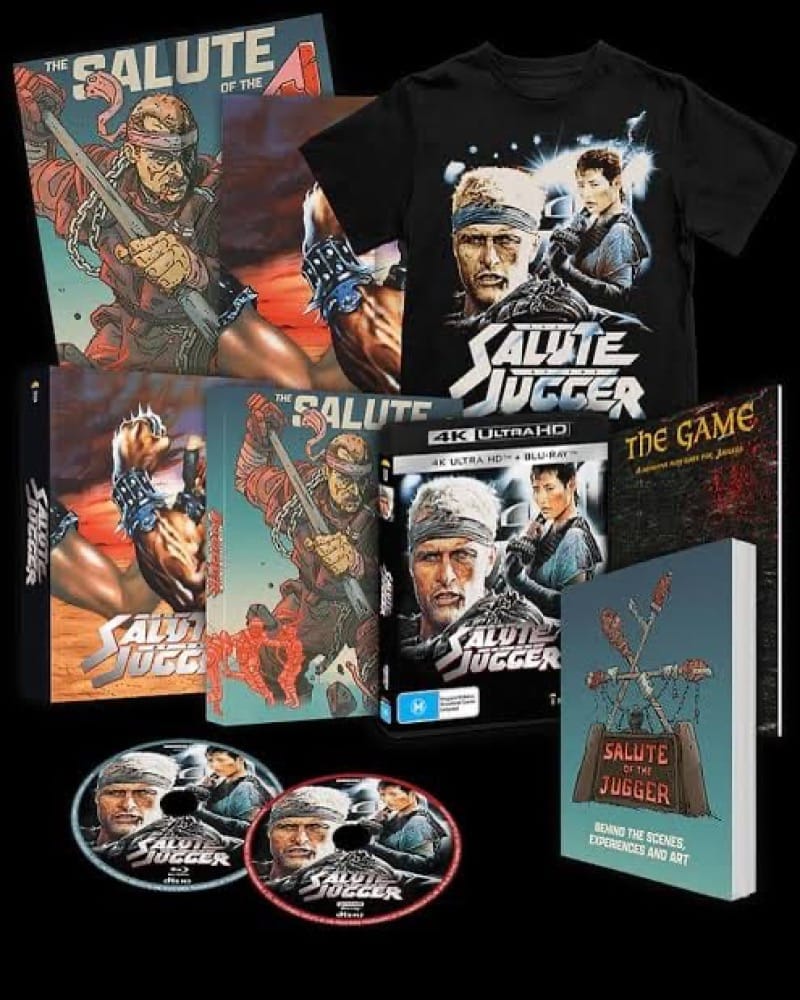
Like I said, it’s pretty sweet.
So, with that having recently arrived, I figured this film was the perfect one to restart my postings of my 20 Most Influential Movies. But, just so we're clear, it's not just because of this awesome new 4K & Blu-ray set either, but also because... I love this movie.
It’s just great.
Way back when in the early 1990s, in my literal one-stoplight town’s crappy little video store, on its crappy little Main Street, I stumbled across this movie on VHS. It was sitting in a sagging and water-warped cardboard box with a bunch of truly bad movies, like Shanghai Surprise, Weekend at Bernie’s 2, Leonard Part 6, a few of the Howlings, and some of the later sequels to Critters. Someone had used a sharpie to hastily scrawl “2 for 1 Rental” on the side of the box, and it was sitting on a beat up chair by the store’s backdoor like it was just about to be thrown out, and they had just gotten distracted at the last minute, and they sat it down by the backdoor so they will remember to throw it out later. So, I picked it up and read the back, and I was like Rutger Hauer is in this? Joan Chen? Vincent D’Onofrio is this movie? Delroy Lindo? What is this film? It looked like a Mad Max meets Major League meets Rocky kind of thing? And it was made in 1989 too? How is it that I have never heard about this film before now? It sounds amazing.
So I rented it. And it was amazing.
And now? Nearly 40 years later? Is this my favorite Rutger Hauer movie? Maybe. That’s a tall order, I know. This is someone who was not only in Blade Runner, but Ladyhawke, and Blind Fury, and Soldier of Orange, and also the Buffy the Vampire Slayer movie, and Surviving The Game too, which admittedly maybe only I actually liked, but still… The Blood of Heroes may be my favorite Rutger Hauer movie. But whether that’s true or not, it’s definitely my favorite post-apocalyptic sports movie, and that’s a hill I’ll die on. Made at the far tail-end of Hollywood’s love affair with pumping out the bastard children of Mad Max movies, The Blood of Heroes is hands down the best post-apocalyptic sports movie ever made.
You laugh? That’s a pretty niche genre, you say?
What about the original Rollerball? What about Battle Royale? What about The Running Man? Deathrace 2000? The Hunger Games? Series 7: The Contenders? The Tournament? Robot Jox? Real Steel? Deathsport? Solarbabies? Have we forgotten about the Thunderdome, people?
Well, as good as those may be... The Blood of Heroes is better.
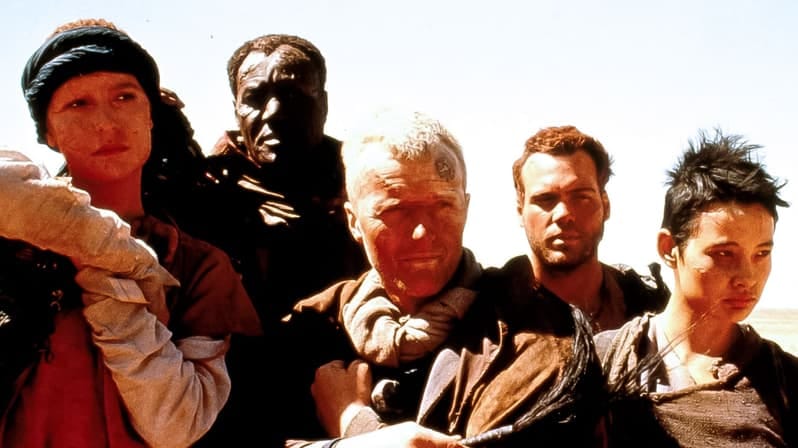
People no longer remembered the Golden Age of the 20th Century. They didn’t remember the miraculous technology or the cruel wars that followed. They didn’t remember when Juggers first played The Game, or how it came to be played with a dog skull…
And thus, our tale begins…
In a barren world, most people live in isolated wasteland enclaves. Some are "market-towns" and some are "dog-towns.” Whatever these towns are, they’re dirty little hives of humanity huddled together against the ravages of the world outside. Here, they scrounge a bare living from the ashen earth, harvesting fibrous crops, raising dogs as food, and trading in the broken trinkets of the past. The only thing that ever breaks the monotony is the brutal sport known as The Game, and that is only played when a roving team of Juggers arrive out of the wastes. These small bands of athletes travel between the towns and challenge the local teams, making their living through the tributes that are paid by the townspeople if they win, and surviving off of the day or two of food and shelter the towns provide them. Their trophy is the game ball, a dog skull painted with runes that describe their victory.
When the Juggers arrive at each town, scarred and battered and dirty, they show their dog skull trophies to the town elders to prove their worth. As the field of play is marked out, and the children help the Judge gather the stones, the two teams of Juggers unlimber their gear, and size each other up as they strap on their armor made of old tires, bamboo, dirty padding, and spikes. Finally, the Judge faces the crowd and calls out “100 stones 3 times!” And at the sound of the first stone hitting the hanging metal gong, the Game begins.
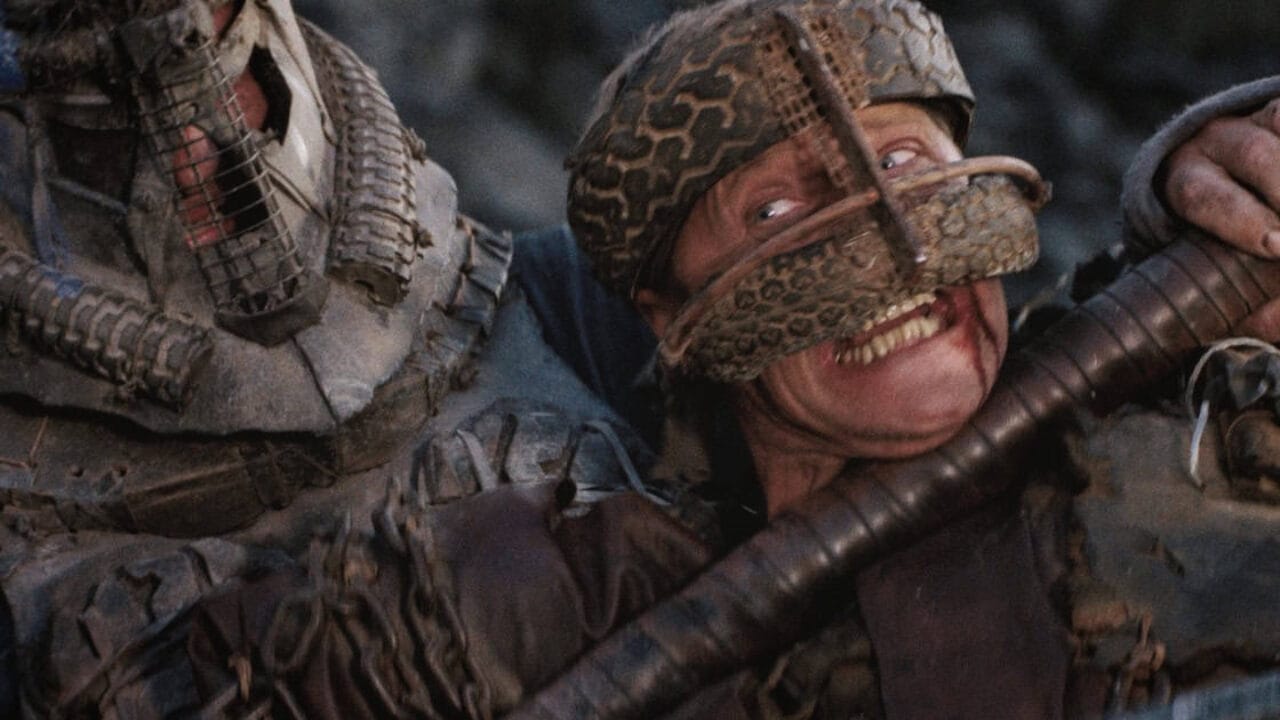
“Show them where you come from! Show them where you’re going, Dog Boy!" – Ghandi, team coach/medic
The Game is played in three rounds, each one measured by three piles of 100 stones. Each round is counted out by the steady pace of the Judge, their back to the field of play, bending down, picking up a stone, standing, and throwing the stone at a hanging gong. Bang! 100 stones, three times. It’s a brutal and fast game, and the players can be very badly hurt, maybe even killed, so there’s a rest and/or first aid break between the first and second rounds.
There are two teams of five players each.
- Qwik – Dressed in light armor, and carrying no weapons, save for their fists and feet and elbows and knees and forehead and teeth, the Qwik is just that… quick, and they are the only one who can touch the dog skull during gameplay. They’re trying to hang the skull off the opposite stake.
- Slash – The Team Captain, and dressed in heavy armor, the Slash calls the plays and carry a heavy staff, a hook on one end and a club on the other. Their goal is to incapacitate the other team, and clear a path for their Qwik.
- Drive – Focusing on defense, or backing up the Slash, the Drive uses a staff with a heavy club on each end.
- Back Charge – Much like the Drive, the Back Charge is also for defense, or backing up the Slash, using a staff similar to the Drive. The main difference between with the Back Charge and the Drive is that the Back Charge can be sacrificed, and used to pin an opposing player during gameplay.
- Maserer – Acting as both a Goalie by guarding their team’s stake from the opposing team’s Qwik, and also as the main protector of their team’s Qwik, the Maserer keeps the opposing players away by whirling their long chain-flail in a wide and brutal arc.
The game is over once three hundred stones have been thrown, or the Qwik hangs the dog skull off the opposing team’s stake. It‘s a game of honor in a world without any, full of broken bones and blood. And then when it’s over… everyone celebrates a game well-played with music and drink and what looks like bbq-ed rats and dogs. The town provides a few whores for the players, and a place to sleep. And they all brings out their jugs, their washboards, their spoons, their dented steel drums, and their dusty old accordions, whatever instruments they have, and proceed to get down, partying the night away until everyone passes out.
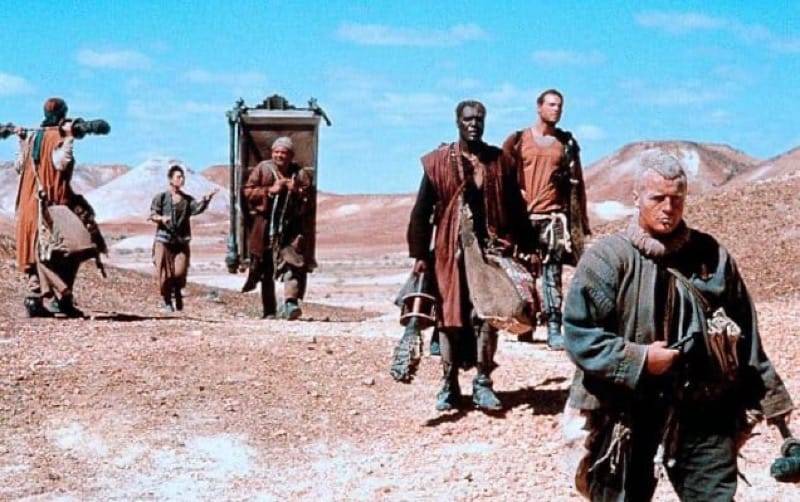
And the next day, the Juggers move on, looking for a town and a new game, and doing their best to dodge the sneering men in the armored vehicles that lurk in the wastes. These are the soldiers of the Nine Cities. They collect “taxes” for the Nine Kings, taking what they want from travelers, because they’re the law, so they can do what they want.
“Who are they?”
“They steal.”
Ain’t it funny how nearly 40 year old shorthand for opportunistic cops in a dystopia, threatening violence in order to enrich themselves, so clearly reflects our own current reality? This scene tells you very little with dialogue, but still manages to tell you everything, and it’s because it is a simple and familiar truth about ugly little men with power and impunity.
Same as it ever was, I guess.
Another thing in this film’s world that is also very much like our own world, is the way that not everyone lives on the edge of survival, check to check, hand to mouth, subsisting on whatever they can scratch out of the cracked earth. Meanwhile, the metropolises of the Nine Cities are buried deep underground, safe from the heat and the dust and the wasteland raiders. Massive concrete structures that were obviously once used as havens for humanity from whatever catastrophe befell the Earth long ago, they are now each the home of one of the Nine Kings, and from here, the affluent, the wealthy, the powerful, this new world’s aristocracy, rule completely. They do so through fear, and oppression, and the jackbooted authoritarianism of their army of Brownshirts.
Again, same as it ever was...
For the entertainment of these indolent patricians, The Nine Cities each field a team of Juggers. This is known as The League. The Juggers on these teams are the best of the best. They have the best equipment and the best facilities. They live in luxury amongst the elites as celebrities and stars, like stables of prized horses. And the teams bolster their rosters as needed by cherry-picking the best Juggers from a steady stream of young talent, veterans of the dog-town circuit, who come to the cities with their collection of dog skull trophies to challenge the City Team, all in the hope of gaining the attention of The League. That’s the great dream of the roving teams of Juggers, to be good enough to one day get The League's attention, and to then be raised up out of the wretched and filthy masses. This is why they break themselves on the field of play.
“In the League, you’re almost one of them.”
Another aspect of society that is shared with our world…
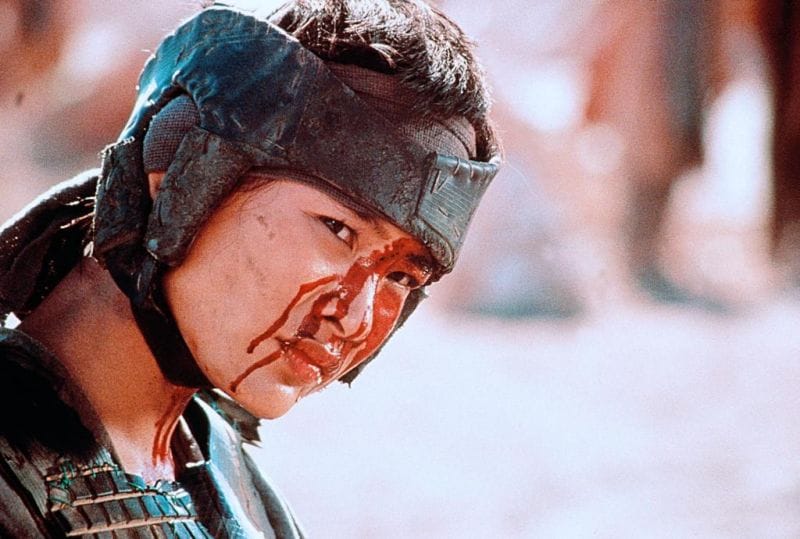
So, the story of The Blood of Heroes is about how Sallow and his band of Juggers–Mbulu, Big Cimber, Young Gar, and the Dog Boy, along with their coach and their medic, Ghandi–come to a nameless dog town at the edge of the wastes. The town team has an alternate Qwik playing for them named Kidda, a young woman who dreams of getting the fuck out of that dirt patch town. When Gar stumbles, and drops his whirling flail, failing to protect the Dog Boy during the Game, resulting in an injury that is bad enough that the Dog Boy can barely walk, and the team has to leave him behind, Kidda sees her chance, and takes his place.
This is her first time away from home.
Long ago, Sallow once played in the League of the Nine Cities. He was once a legendary Slash on the Red City team. But he was cast out due to his indiscretions with an Overlord's mistress, banished for erroneously believing himself to be their equal. Kidda is dazzled by his stories of the Nine Cities, of dinners of candied fish, of people whose skin has no scars, and the way that silk feels like the wind on your cheeks. As the team proves their dominance on the dog town circuit, Kidda and Gar manage to convince Sallow to return to the Red City. There, they will make an official challenge to The League, possibly changing all of their futures, and Sallow may even expunge his own past, or at the very least, show those fuckers that he’s still the best that ever was at The Game.
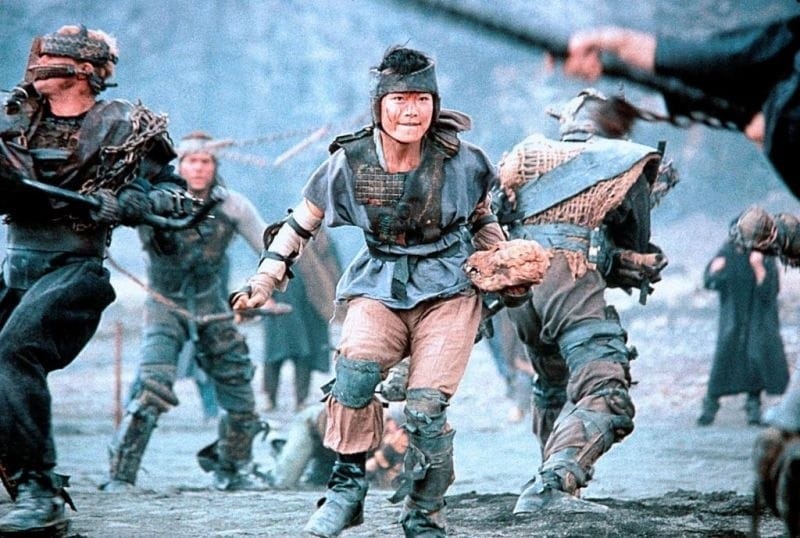
It’s a long slow elevator ride down into the depths of the earth.
Once there, Kidda and Gar find that the Red City is a place of darkness, concrete, constant dripping, and crowded corridors of human stink and cooked meat, all lit by weakly flickering bulbs. Here, the filthy hoi polloi eat rats, and rent hammocks to sleep for the night, suspended over nothing, high up on concrete walls, where the night waste rains down from the hammocks above, and the dead are left to rot until they are eventually rolled over the edge. And all the while, the wealthy walk without concern in their brightly lit corridors above, dining on lavish buffets as string quartets play.
Here, Kidda and Gar are shocked to discover that the League games are played on a level that they have never seen, a much harder, much meaner, and much more dangerous level, and they begin to get worried.
“How do you know if you’re good enough?”
“You know.”
“What if you’re wrong?”
“You find out.”
They become even more worried when they discover that when Sallow and his old team made their challenge all those years ago, the challenge that got all of them the attention of the League, that they set a record for the longest challenge ever, by lasting 23 stones before they lost. Even more impressive than that, a few of them were still standing at the end.
But Sallow‘s reputation proceeds him as the council looks over their dog skull trophies, and their challenge is almost denied due to that alone.
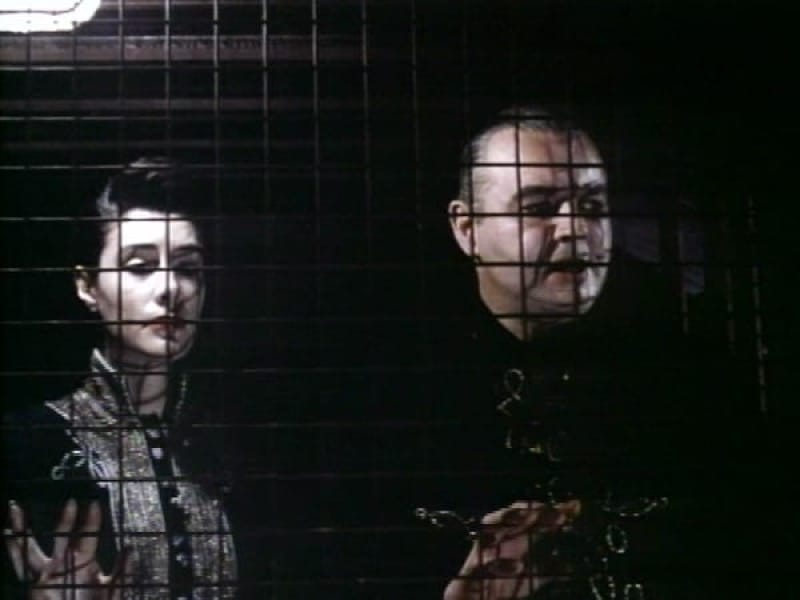
But then Lord Vile shows up.
He still remembers Sallow, for it was his mistress that Sallow stole from him, and he was the one who then banished Sallow to the wastes. He still holds a grudge too, so he uses his influence on the council.
Their challenge is accepted.
The next day, in the quiet of the unattended colosseum, Sallow find himself facing Gonzo. A legendary veteran Slash, and an old friend who was on the same team as Sallow all those years ago when they first gained the League’s attention, Gonzo has been ordered by Lord Vile to break Sallow in half.
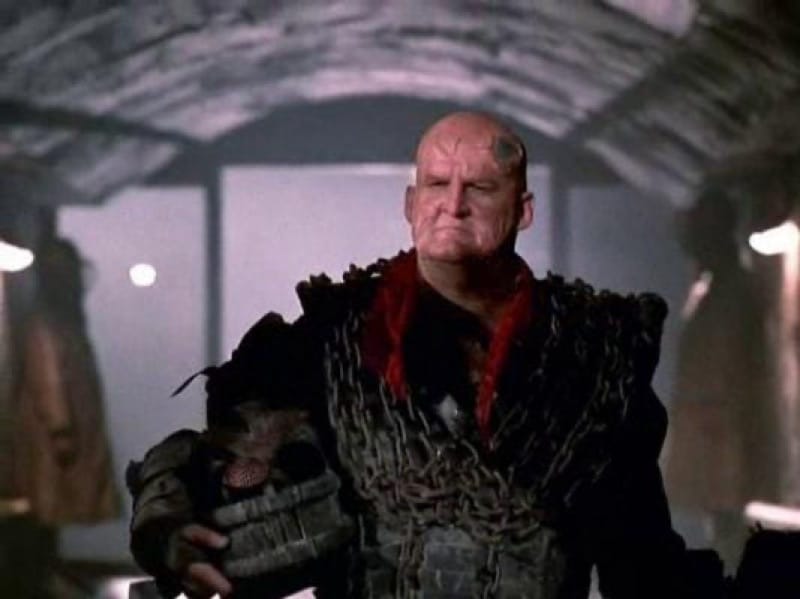
But The Game is a game of honor in a world without any, and Gonzo would never hurt another Jugger for any other reason than to hang a dog skull on a stake. He has Sallow pinned instead, meaning to wade through the team and shut down the challenge quickly. But the rest of the team manages to hold on for the first round, something that has never been done before, and word spreads quickly amongst the common people that a challenge has lasted 100 stones. Soon enough, the stands are packed with an exuberant audience.
Unfortunately, Big Cimber is too injured to play the second round, having been seriously injured restraining Gonzo and keeping their hopes alive. So Ghandi, their old manager, steps in. Sallow has Ghandi pin the Red City player who pinned him in the first round, and then reminds Gonzo that he’s always been better than him, before laying out the Red City Qwik, and telling Kidda to "walk... slowly" and place the skull on the pole. The crowd goes wild as the first dog town team to ever win a challenge, does so in less than 200 stones.
In the end, Kidda, Gar, and Mbulu gains the attention of the League, and they enter into a world that loves to celebrate them in victory, and loves to spit on them in defeat, but mostly, just loves to watch them bleed. But as for Sallow, he leaves the Red City, and is back to wandering the wastes, playing the dog towns with a new team of young hopefuls, all while Lord Vile smiles, happy to know that his vengeance on the man who slighted him so long ago is still ongoing.
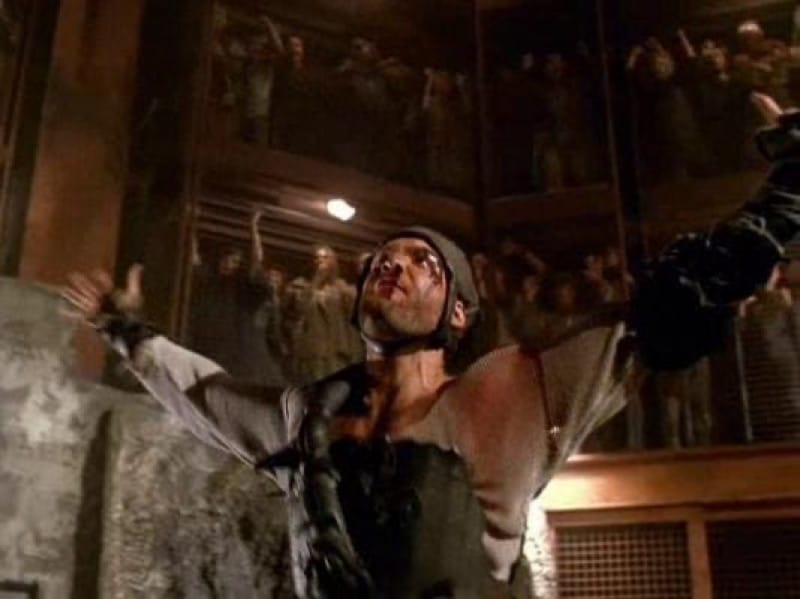
Having only watched the Blood of Heroes all these years, which is the 90 minute American release version, which I have always loved and thought was fantastic, I want to be unequivocably clear here... the original 104 minute Australian version, known as The Salute of the Juggers, is the far, far superior version.
Just top notch, all around better.
Loved it.
Much like with the original Star Wars Trilogy, or Romero’s Night of the Living Dead and Dawn of the Dead, the world-building in this film is absolutely fantastic. I love how it tells its story through its characters, living in their world, all while giving us very organic glimpses of the greater world, which are then used to inform us how this society operates. When this is done well, it makes for a very satisfying watch, and it's the key to creating audience engagement with your art. You want to know more about this world, about The Nine Kings, about Dantooine, about the rednecks out for a day of shooting zombies, because of that sense you got of how potentially expansive the world is.
It's a deceptively simple thing to pull off in a script, and this film does it so well, you might not even notice the level of understanding and inferred backstory you have while watching it. I love that. I am always in awe of how seemingly effortless this kind of world-building seems. And it’s all accomplished with hardly any overt explanation, and is mostly done by the end of the first match too. It's at that point that you understand that this “lawless future” isn’t actually lawless at all. You can clearly see that there are laws and rules to how things work, and that those laws and rules are actually part of what makes this terrible future so terrible.
And at the same time, the film also does a really good job of not explaining everything too. For instance, how to play the game is pretty clear–so clear in fact that a bunch of weirdos around the world actually play a much safer LARPing style version of the game–and yet, some of the specific rules, like for instance, the difference between some of the roles, especially those of the Slash, the Driver, and the Back Charge, is not very clear at all. Or how we hardly see the soldiers and the elites of the Red City, and we certainly never see the Red City king, or even any of the other cities for that matter, but the shadow they cast, their presense in this world, hangs over everything. That story, who these people are, and how it is they came to power, much like what exactly it was that happened to the planet to lead to this world, is never told us, and yet it is clearly imparted to us through the setting and how the characters act and interact with their world.
For me, at least, this is a big part of what makes The Blood of Heroes a truly great, and very underappreciated film. And it is all the more impressive to me because we are talking about a late-1980’s Mad Max/Sports movie here. Plus, and I'm always loathe to use this particular metric, but... it's not like we're talking about an Oscar winner here, y'know what I mean? That said, it’s still an incredibly well done and very efficient piece of storytelling, one that gets surprisingly dark, even as, or more appropriately, especially because, it rewards our heroes with victory.
I love that.
Most of all, I especially love this, as it is all on top of the fact that The Blood of Heroes is just a good time at the movies. It's fun. Tonally, the balance is perfect. It features a lot of the slow minutiae of daily life for these people, but does so all in the service of the plot, laying out their motivations clearly. It takes itself, and its world, seriously, and yet at the same time, it isn't overly self-serious. After all, this is a movie about a farm league team of people, who play a post-apocalyptic rugby meets lacrosse gladiator sport, for and with a dog skull, who decide to journey to the Big City to try out for the Big Leagues, with all the tropes of sports movies and mad max movies that you would expect... so it's definitely silly, but it's also not afraid of it's silliness, or of humor, or to portray the characters as being that way too. For as crasy a setting as it is... it feels real. Or real enough. And that's the rub. That's what the coolest part of this movie is for me... It's unafraid to be what it is, and it does it so well. And again, this is all in a film that, just by looking at it, and by seeing what it's about, you honestly would not expect it to be as good as it is, so that's a nice little surprise the first time you see it.
Plus, The Game seems pretty hardcore too, in much the same way The Roadwarrior does. Obviously a ton of stunt people were involved here, and the action of the sport is obviously more like a choreographed dance than actual game, because this is a movie, after all, but still, it's very fast moving and involves lots of contact, and the actors are in there too, so I have to wonder... how many of them do you think were injured while filming?
In the end, The Blood of Heroes is a suprisingly familiar, and often surprisingly melancholy, post-apocalyptic sports movie about aging, loss, legacy, and one last ride. It's about sacrificing everything to "make it" and the fleeting glory of victory. It's about daring to dream big, about daring to reach for that brass ring with your "wicked jump shot" as Biggie said, in an uncaring, broken-down world riven by classism and authoritarisim. And it's about the cold reality of what happens to people who make sports their whole life, eschewing all else, and what the next day looks like once you have finally reached the top, but also, what the next day looks like when you have leapt for that brass ring and missed, or even worse, if you had that brass ring, but then you lost your grip.
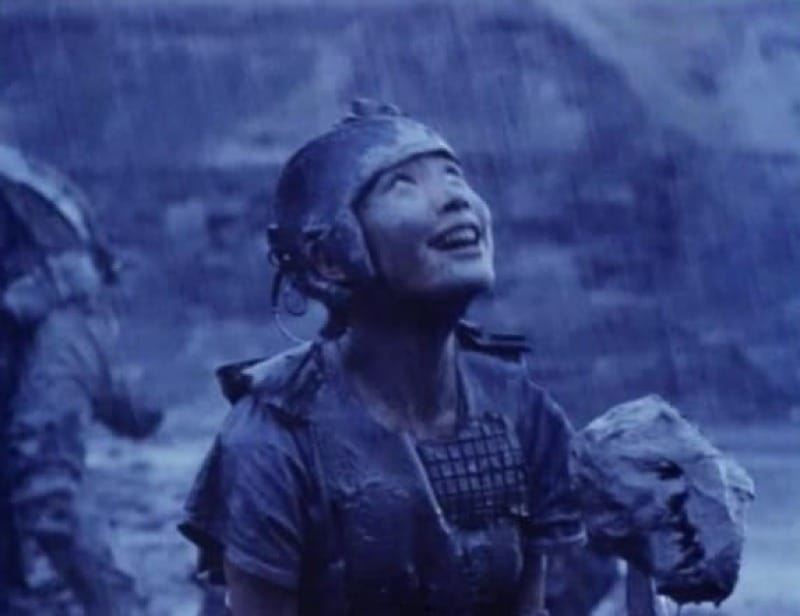
And the fact that all of this just so happens to take place after the collapse of society, which means that losing could mean dying in the sun-baked wastelands, makes The Blood of Heroes/The Salute of the Juggers all the more incredible.
That's why I love it.
Big thumbs up.
